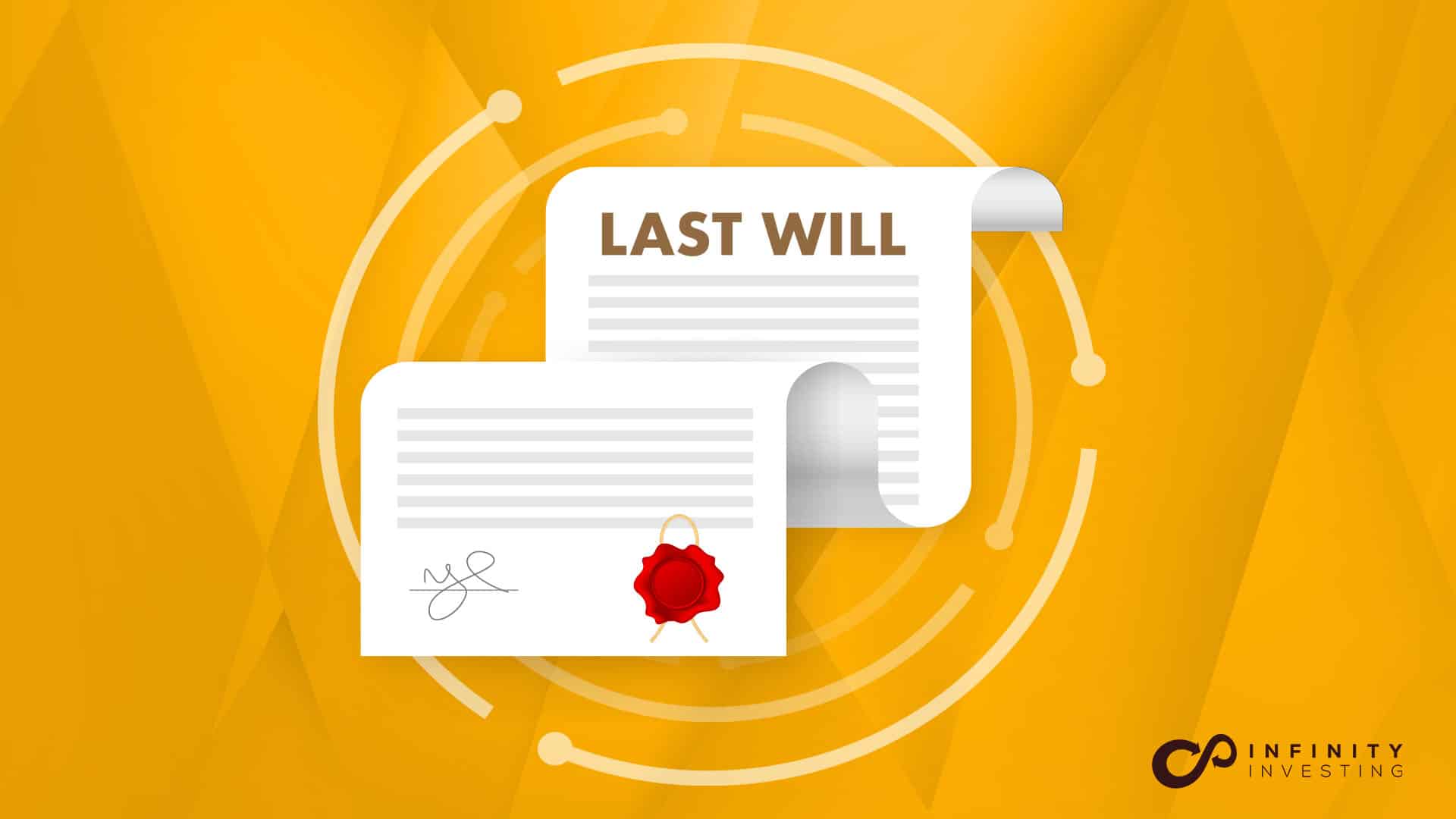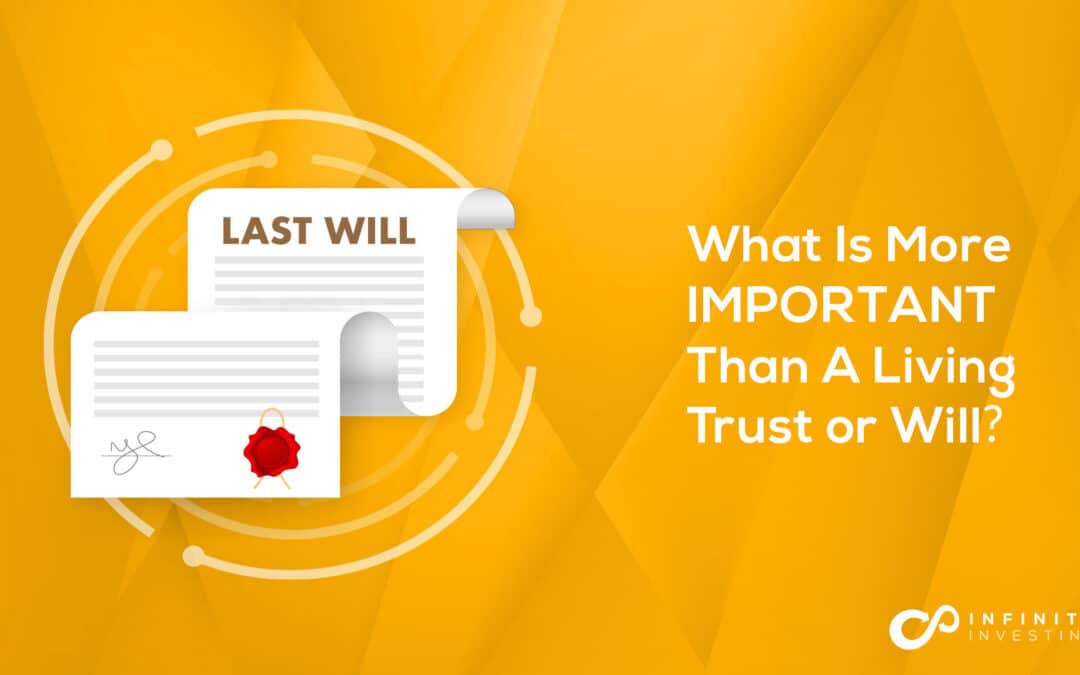
What Is More IMPORTANT Than A Living Trust or Will?
Rethinking Estate Planning: More Than Just Wills and Trusts
Today we’re going to tackle a topic that’s often misunderstood in the realm of estate planning. When most people think about planning for the future, their minds immediately jump to living trusts and wills. Sure, these are key components of securing your legacy, but there’s an aspect that’s even more crucial, yet frequently overlooked.
In my experience, I’ve seen many well-intentioned estate plans fall short because they missed this critical element. It’s not just about documenting how your assets should be distributed; it’s about ensuring that your plan actually works as intended when it’s needed the most.
So, let’s dive in and explore what truly matters in estate planning. By the end of this, you’ll have a new perspective that could make all the difference in how you approach securing your legacy and protecting your loved ones.
Understanding the Shortcomings of Wills and Living Trusts
The Limitations of Wills and Living Trusts:
As an estate planning expert, I’ve seen my fair share of wills and living trusts. While they are fundamental tools in estate planning, it’s crucial to recognize that they have their limitations. Let’s break down why relying solely on these instruments might not be enough.
The Basic Role of Wills and Living Trusts:
Wills: They’re about directing who gets what when you’re no longer here. But remember, wills go through probate, which can be a lengthy and public process.
Living Trusts: These are fantastic for avoiding probate and managing your assets during your lifetime. However, they only control what’s actually titled in the trust.
Common Misconceptions:
Misconception 1: “Having a will or trust covers all my bases.” Not quite. These documents don’t necessarily cover all aspects of your estate, especially assets not explicitly named.
Misconception 2: “My family won’t face any challenges with my will or trust in place.” Even with these documents, families can encounter disputes or legal challenges.
The Reality of Legal Limitations:
Probate Issues with Wills: Wills don’t avoid probate; they guide it. Probate can be costly and time-consuming, potentially causing stress for your loved ones.
Overlooked Assets in Trusts: If you forget to title an asset in your trust, it won’t be protected by the trust’s provisions. This oversight can lead to unintended consequences.
Toby’s Insight:
While wills and living trusts are essential, they’re just part of the puzzle. A comprehensive estate plan should address more than just asset distribution. It’s about ensuring your wishes are carried out effectively and efficiently, without leaving your loved ones in a bind.
Infinity Investing Featured Event
In this FREE event you’ll discover how the top 1% use little-known “compounders” to grow & protect their reserves. Our Infinity team of experts show you how to be the best possible steward of your finances and how to make your money and investments work for you instead of you working for them. Regardless of your financial situation today, you’ll have a road map to get to where you want to be.
The Critical Piece Missing in Most Estate Plans -The Essential Element Often Overlooked:
In the world of estate planning, there’s a key element that’s often glossed over, yet it’s crucial for ensuring your plan actually works as intended. This element is not as tangible as a document or a legal structure, but it’s what truly binds your estate plan together and makes it effective.
Introducing the Overlooked Element:
What It Is: The most critical aspect of any estate plan is clear and thorough communication. It’s about making sure that your loved ones and key players in your estate understand your intentions, the details of your plan, and their roles in it.
Toby’s Insight: You can have the most meticulously crafted will or trust, but if those who are part of executing it are in the dark, your plan can fall apart at the seams.
Why Communication is Key:
Preventing Misunderstandings: Clear communication can prevent misunderstandings and disputes among family members and beneficiaries.
Ensuring Smooth Execution: When all parties understand their roles and responsibilities, your estate plan is more likely to be executed as you intended.
Common Pitfalls of Poor Communication:
Family Disputes: Lack of clarity can lead to conflicts, turning what should be a time of mourning into a battleground.
Legal Challenges: Miscommunication can result in legal challenges, dragging your estate through a lengthy and costly process.
Toby’s Advice:
Be Proactive: Don’t wait until it’s too late. Engage in open and honest conversations with your family and key figures in your estate plan.
Detail Your Wishes: Make sure everyone understands not just what your wishes are, but why you’ve made certain decisions. This understanding can be invaluable in preventing disputes.
In essence, while wills and trusts are the framework of your estate plan, communication is the mortar that holds everything together. By ensuring clear communication, you’re not just planning for the distribution of your assets, but also for the well-being and harmony of your loved ones after you’re gone.
Real-World Consequences: When Estate Plans Go Awry
In my years of experience in estate planning, I’ve witnessed firsthand how overlooking key elements can lead to real-life complications. Let’s explore some scenarios that highlight the importance of comprehensive planning and clear communication.
Scenario 1: The Uninformed Family:
- Situation: A well-drafted trust is in place, but family members are unaware of its contents or the rationale behind certain decisions.
- Outcome: After the individual’s passing, the family is left confused and hurt, leading to disputes and potential legal battles. The trust’s intentions are questioned, and its execution becomes a contentious process.
Scenario 2: The Forgotten Asset:
- Situation: An individual sets up a living trust but fails to include a significant asset, assuming it’s covered.
- Outcome: This oversight leads to that asset going through probate, contrary to the individual’s wishes for a smooth, private transfer of their estate.
Scenario 3: The Ambiguous Will:
- Situation: A will is created with vague language and unclear directives.
- Outcome: Beneficiaries are left to interpret the will’s intentions, resulting in disagreements and a drawn-out probate process that diminishes the estate’s value.
Toby’s Analysis:
These scenarios are more common than you might think. They underscore the need for not just proper legal documentation but also for ensuring that all aspects of your estate plan are clearly communicated and understood.
It’s not enough to have your wishes written down; they need to be effectively conveyed and comprehensively covered.

The Bigger Picture with Estate Planning:
Beyond Documents: Estate planning is about more than drafting documents. It’s about creating a plan that works in practice, not just in theory.
The Role of Communication: Clear communication can prevent these scenarios, ensuring your estate plan functions as intended and your legacy is preserved in the way you envisioned.
Tips to Seamlessly Incorporate Clear Communication into Your Estate Plan
As we’ve seen, clear communication is the linchpin of an effective estate plan. It’s one thing to have your documents in order, but ensuring that your wishes are understood and followed is where the real magic happens. Let’s talk about how you can integrate this crucial element into your estate planning process.
Start with Open Conversations:
Action Step: Initiate discussions with your family and key figures in your estate plan. This isn’t just about relaying information; it’s about creating a space for dialogue and understanding.
- Toby’s Tip: Be transparent about your decisions. This can help mitigate feelings of surprise or confusion later on.
Clarify Your Intentions:
Action Step: Clearly articulate the reasons behind your decisions in your estate plan. This can be done through a letter of intent or a more informal personal statement.
- Toby’s Tip: Sometimes the ‘why’ is just as important as the ‘what.’ Understanding your motivations can help your loved ones respect and adhere to your wishes.
Regularly Update and Review:
Action Step: Estate planning isn’t a one-and-done deal. Regularly review and update your plan, and keep your family informed of any changes.
- Toby’s Tip: Changes in life circumstances, relationships, and assets mean your estate plan should evolve too. Keeping everyone in the loop prevents outdated information from causing issues.
Professional Guidance:
Action Step: Work with estate planning professionals to ensure your plan is comprehensive and your communication strategies are effective.
- Toby’s Tip: An experienced professional can offer invaluable advice on how to approach these conversations and ensure your plan reflects your wishes accurately.
Document Everything:
Action Step: Keep detailed records of your estate plan and the communications you’ve had about it.
- Toby’s Tip: Documentation can be a powerful tool in ensuring your plan is executed as intended, especially in the face of potential disputes.
The Heart of Effective Estate Planning
As we come to the end of our discussion, it’s clear that estate planning is more than just drafting documents. It’s about creating a roadmap for the future that reflects your wishes and safeguards your legacy. Remember, the most critical element in this process isn’t just the legal structures you put in place, but the clarity and communication that surround them.
In my experience, the best-laid plans are those where intentions are clearly communicated, and all parties involved understand their roles and responsibilities. This approach not only ensures that your estate plan is executed as you envisioned but also helps maintain harmony among your loved ones after you’re gone.
So, as you embark on or revisit your estate planning journey, keep in mind that the true effectiveness of your plan lies in its ability to be understood and implemented as intended. And don’t forget, professional guidance is invaluable in navigating this complex but crucial process.
Take the Next Step: Secure Your Legacy with Confidence
Now that you’re equipped with this knowledge, what’s the next step? If you haven’t started on your estate plan, now is the time to take action. And if you already have one, perhaps it’s time for a review, especially through the lens of clear communication and understanding.
Schedule a Consultation:
Reach out to a professional for a consultation. Whether it’s reviewing your current plan or starting a new one, expert advice can make all the difference.
Open the Dialogue:
Begin those important conversations with your family and key figures in your estate. It’s never too early or too late to start.
Stay Informed:
Keep learning about estate planning. The more informed you are, the better decisions you’ll make for your legacy.
Remember, estate planning is a profound gesture of care for your loved ones and a crucial step in securing your legacy. With the right approach and professional guidance, you can create a plan that stands the test of time and truly reflects your wishes.
Feel free to call me and my team at (800) 706-4741 or reach out to me and my team for more insights and assistance in your estate planning journey. Let’s ensure that your legacy is protected and your future is secure.
Infinity Investing Featured Event
In this FREE event you’ll discover how the top 1% use little-known “compounders” to grow & protect their reserves. Our Infinity team of experts show you how to be the best possible steward of your finances and how to make your money and investments work for you instead of you working for them. Regardless of your financial situation today, you’ll have a road map to get to where you want to be.

